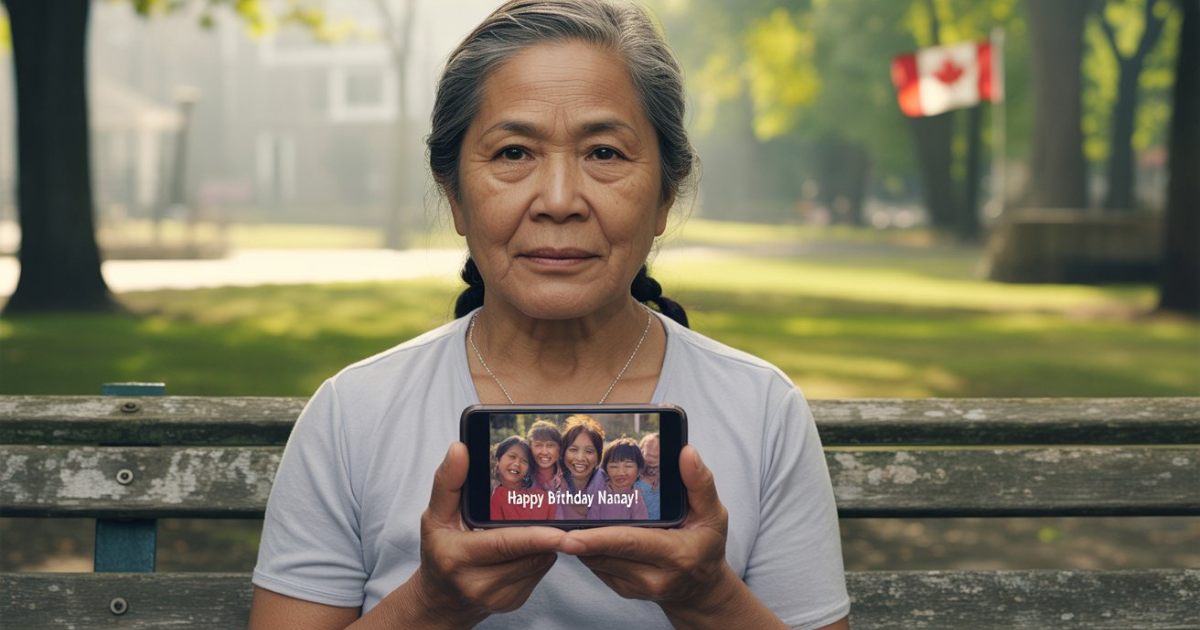
Caregivers Leaving Home to Feed Home: Emotional Cost
Caregivers leave home to feed home is a reality for so many foreign caregivers mostly from the Philippines, Indonesia, Africa, South America, and the Caribbean. Canada’s booming demand for in-home care attracts thousands of workers each year, yet many must leave their families behind in hope of better pay. Consequently, these “caregivers leaving home to feed home” face a complex emotional landscape. Meanwhile, remittances sent by migrant caregivers underpin home-country economies, often billions annually, but at great personal cost (International Labour Organization). However, the promise of stable income and a path to permanent residency in Canada often collides with homesickness, guilt, and isolation. This article examines both sides of the coin: the financial benefits and the hidden emotional price, offering insight, real stories, and practical advice for caregivers and their loved ones.
The Financial Promise vs. the Emotional Cost
Canada’s caregiver streams offer wages up to CAD 18–22 per hour. This is far above many home-country rates for foreign caregivers, transforming household incomes through regular remittances. However, families pay a different kind of price when a parent or spouse departs. First, homesickness manifests physically: studies show separation activates neural pain pathways similar to physical injury. Second, caregiver-parents often report intense guilt over missed milestones such as birthdays, graduations, bedtime stories. This has the potential of leading to anxiety and depression for so many foreign caregivers. Furthermore, the long-term view of “feeding home” can obscure daily emotional struggles: while bank balances grow, the heart endures an invisible strain.
Family Ties Stretched Across Continents
Caregivers leaving home to feed home create long-distance families who find themselves navigating through complex logistics. For instance, coordinating video calls across time zones can become an extra burden rather than relief. Moreover, children of absent caregivers face elevated risks of anxiety and attachment issues when parental contact is unpredictable. Meanwhile, primary caregivers back home, often elderly parents or older siblings, shoulder increased duties, intensifying intergenerational stress. Consequently, relationships can fray. Caregiver partners report feeling like “roommates” rather than spouses, and children may struggle academically without direct parental support. Despite modern tech, miles can feel insurmountable when cultural and language barriers limit genuine connection.
Loneliness and Culture Shock
Even experienced migrant caregivers recount culture shock after arrival. For many caregivers, the first weeks in Canada entail navigating new social norms, weather extremes, and unfamiliar food, alone. Studies indicate over one-third of unpaid caregivers in Canada report distress, with emotional exhaustion peaking around month three of migration. Social isolation compounds this: live-in caregivers often work long shifts, limiting opportunities to build friendships outside the employer’s home canadiancaregiving.org. Moreover, language barriers can deepen the sense of otherness, as minor miscommunications in healthcare tasks or grocery shopping exacerbate emotional fatigue. Consequently, many struggle silently, afraid to appear ungrateful for the opportunity.
Coping Strategies and Support Networks
Fortunately, effective coping strategies and community supports exist. First, structured virtual rituals, weekly themed video calls restore predictability and ease guilt. Secondly, peer support networks, such as the Canadian Caregiving Alliance and local newcomer associations, offer both practical advice and emotional solidarity canadiancaregiving.org. Third, professional mental health services like CMHA’s sliding-scale counselor referrals provide confidential support to caregivers facing burnout. Meanwhile, mindfulness apps tailored to migrants help manage anxiety with daily guided exercises. Finally, community-led cultural events (e.g., Filipino, Ghanaian, Latin American caregiver meetups) foster belonging and reduce loneliness.
Stories of Resilience and Hope
Maria’s Journey (Philippines → Toronto): Maria left two young children in Manila to work as a home support worker in Toronto. Although she missed her daughter’s first steps, she instituted nightly “story calls” and sent weekly care packages. Over time, Maria’s children grew to anticipate her virtual “goodnight” voices, turning pain into ritual.
Jorge’s Solution (Mexico → Vancouver): Jorge felt isolated until he co-founded “Caregivers Connect,” an online forum where migrants share tips on everything from local clinics to budgeting. The sense of community transformed his loneliness into leadership International Labour Organization.
These stories illustrate that while the emotional journey is arduous, resilience and creativity can forge new forms of family togetherness.
Advice for Prospective Caregivers
- Plan Communication Early: Establish a fixed weekly schedule for video calls and stick to it, minimizing missed connections.
- Research Support Groups: Before departure, identify local caregiver associations in your Canadian destination—these groups can be lifelines canadiancaregiving.org.
- Prioritize Self-Care: Block out regular breaks, mindfulness sessions, and local cultural events to recharge emotionally.
- Document Your Journey: Keeping a private journal or blog can help process emotions and preserve family memories.
- Seek Professional Advice: Engage an RCIC (Regulated Canadian Immigration Consultant) to clarify program requirements and reduce application stress.
Conclusion
The decision to leave home to feed home in Canada brings both economic uplift and profound emotional trials. Yet, with thoughtful coping strategies, active support networks, and a resilient mindset, caregivers can transform separation into shared strength. Accordingly, we invite you to share your own caregiving story, subscribe for more insights, or download our free “Caregiver’s Connection Guide” to keep hearts and homes united.
1 Comments


Canada Caregiver Life: What They Don't Tell You Before You Arrive
[…] Caregivers Leaving Home to Feed Home: Emotional Cost […]